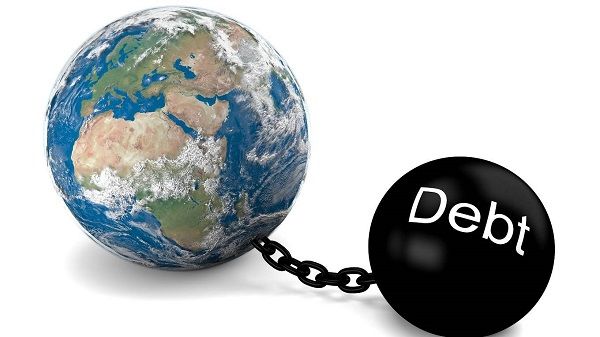In a world where economic stability is often heralded as a hallmark of effective governance, the recent actions of President Bola Ahmed Tinubu raise critical questions about the integrity of fiscal management and the broader implications for the Nigerian populace. The claim that he has successfully paid off $3.4 billion in debt, juxtaposed with the announcement of a new loan request for $21.5 billion, presents a paradox that merits deeper examination.
By Abdul-Azeez Suleiman
This fiscal maneuvering occurs against a backdrop where the cost of living continues to rise, particularly in the realm of food prices, outpacing the wages of the average worker. The implications of this economic scenario extend beyond mere numbers; they touch upon the dignity of individuals and the value of women in society.
At the heart of President Tinubu’s financial strategy lies a troubling dichotomy. On one hand, the repayment of a significant debt can be seen as a positive step toward economic recovery and stability. It suggests a government that is actively working to reduce its liabilities and improve its creditworthiness.
However, the simultaneous pursuit of a new, larger loan raises eyebrows. It begs the question: Are these financial maneuvers genuinely aimed at fostering economic growth, or do they reflect a deeper systemic issue within Nigeria’s fiscal policy? The reliance on borrowing to finance government operations and development projects often leads to a cycle of debt that can stifle long-term economic growth and exacerbate existing inequalities.
This economic instability is particularly evident when considering the plight of the average Nigerian worker. In a country where the price of food often exceeds the wage of a worker, the implications are dire.
When basic necessities become unaffordable, the dignity of individuals is compromised. The struggle to provide for oneself and one’s family can lead to a sense of helplessness and despair. In such an environment, the intrinsic value of a person is diminished, leading to a society where the dignity of man is cheapened. This situation is not merely a statistic; it represents a profound moral failing within a system that should prioritize the welfare of its citizens.
Moreover, the economic challenges faced by the average worker disproportionately affect women, who often bear the brunt of financial hardship in families. In many societies, women are already at a disadvantage in terms of access to resources, education, and employment opportunities. When food prices soar and wages stagnate, the value of women in society is further diminished. They are often forced into precarious work situations or compelled to make sacrifices for the sake of their families’ survival. The intersection of economic hardship and gender inequality creates a vicious cycle that undermines the progress toward gender equity and social justice.
The statement by a former Minister, Solomon Dalung, that “in any country where the price of food is higher than the wage of a worker, two things will be very cheap: the dignity of a man, the value of a woman” encapsulates the urgent need for a reevaluation of economic policies and priorities. It calls for a shift in focus from mere fiscal maneuvering to a genuine commitment to improving the living conditions of all citizens. Sustainable economic growth must prioritize the welfare of the populace, ensuring that wages keep pace with the cost of living and that essential services are accessible to all.
The economic landscape under President Bola Ahmed Tinubu presents a complex interplay of debt management, fiscal responsibility, and social equity. While the repayment of debt may be a step in the right direction, the pursuit of new loans amidst rising living costs raises significant concerns about the sustainability of such practices. The implications for the dignity of individuals and the value of women in society cannot be overstated. As Nigeria navigates these challenges, it is imperative that policymakers prioritize the well-being of their citizens, fostering an environment where dignity and value are not merely aspirational ideals, but fundamental rights afforded to all. Only then can the nation hope to break free from the cycle of debt and inequality, paving the way for a more just and equitable society.


